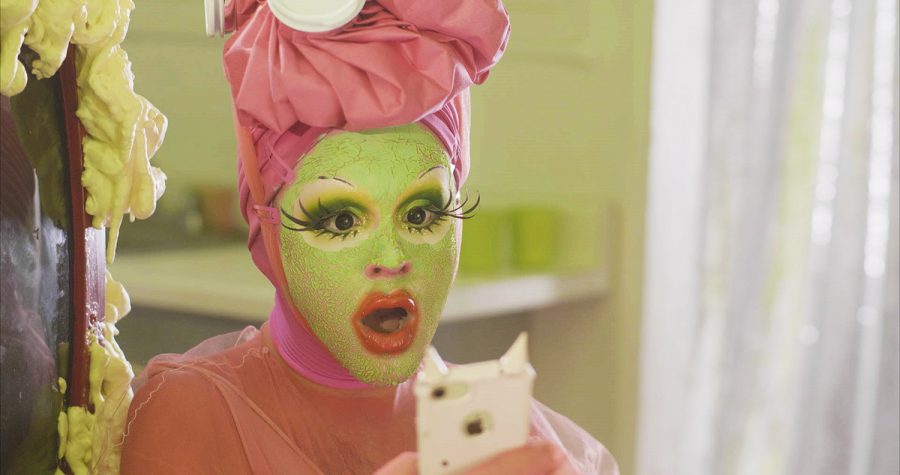Local production company explores ‘full spectrum’ of identity
September 22, 2019
Molly Hewitt doesn’t intend to make movies that look so gay, it just happens.
In their recent film, “Holy Trinity,” which focuses on a dominatrix who huffs an aerosol can and develops the ability to speak to the dead, Hewitt’s aesthetic of bold, glamorous imagery is equal parts incidentally and intentionally queer, they said.
“It’s one of those weird things where it’s self-fulfilling,” Hewitt said. “It’s intentional but at the same time that’s just the aesthetic that I enjoy, and it’s like, do I enjoy that aesthetic because I’m queer? I think the answer is yes.”
Hewitt wrote, directed, produced and starred in “Holy Trinity,” which will be screened at the Music Box Theatre, 3733 N. Southport Ave., on Sept. 27 at 9:45 p.m. The film was also produced by Full Spectrum Features, a nonprofit production company that is “committed to increasing diversity in the independent film industry by producing, exhibiting and supporting the work of women, LGBTQ and minority filmmakers,” according to its website.
Eugene Park, the founder and executive director of Full Spectrum Features, said there was not a lot of deliberation on whether or not to produce “Holy Trinity” when Hewitt first came to him with the idea. After working with Hewitt since they were an intern at Full Spectrum, Park was encouraged by their growth as an artist and their unique voice.
“There was no money on the table, there was no prospect of bringing in big name actors,” he said. “I just responded immediately to Molly’s vision of the script, and, based on their body of work, I knew they’d do an excellent job.”
Park founded Full Spectrum in 2015 when he noticed the lack of nonprofits in Chicago that focused on diversity and inclusion in narrative filmmaking. As an Asian American, he also wanted to create an organization that supported stories about the multiplicity, complexity and intersectionality of identity—a “full spectrum” of work rather than a
singular demographic.
A question Full Spectrum often asks itself, Park said, is: Who has the right to tell whose story? According to Park, storytellers with certain experiences or identities are not immune from perpetuating stereotypes, and it is not impossible for someone without those experiences and identities to authentically capture them either. However, Park said people from within a community are usually able to bring the most nuanced perspective and insight to a film about that community—whether they are behind or in front of the camera.
For this reason, Hewitt was mindful in their hiring for “Holy Trinity,” ensuring the cast and crew was diverse
and inclusive.
“If you’re looking for women, or if you’re looking for queer people, or [assigned- female-at-birth] people, or people of color and those people are not on the list, you just have be like, ‘No,’ and be persistent and not just take the first people that pop up,” Hewitt said. “Because those people do exist, you just, unfortunately, have to try a lot harder to find them.”
This kind of behind-the-scenes representation is important to Hewitt because of the nuance Park said inclusion can bring—for instance, their queer aesthetic.
“That aesthetic of loud, bright, colorful, shiny, over-the-top, it comes from the same place of drag,” Park said, “[of] identifying with beauty and glamor and almost taking things that come from a place that we don’t belong, and reclaiming that. It is this sort of queer uniform that you see. Everything is this bright, loud, celebratory thing, and I don’t think that’s incidental. It’s kind of a feeling that transcends through
queer culture.”








